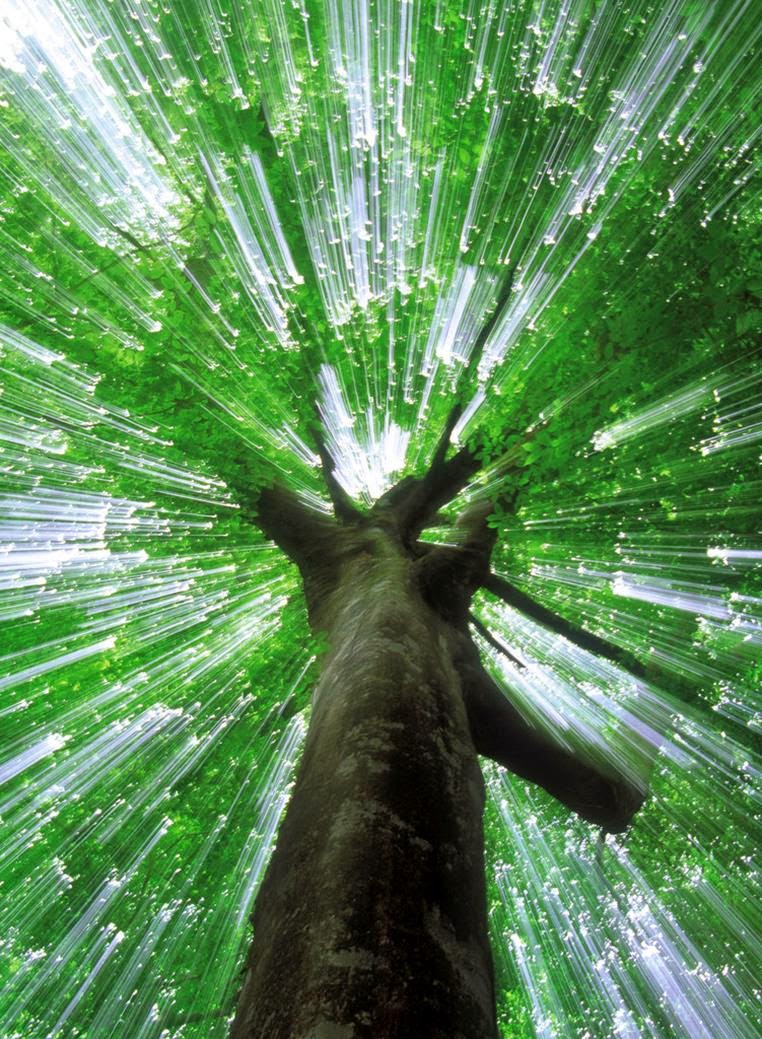A Slow Down Stormwater Runoff commercial by ESD will air on FOX TV multiple times per week through May 11. The message is to plant trees, native plants, and have a rain barrel as ways to slow down runoff. Runoff can carry pollutants down storm drains but if we can reduce the runoff and slow it - and not litter and use less chemicals such as fertilizers and pick up pet waste we can have only clean runoff going down storm drains.
The EPA has a great summary with the mantra: Slow It Down, Spread It Out, Soak It In.
Here are doable things to do in your yard - or at your church or....
1. Add plants. Incorporate plantings, especially in areas where
runoff collects. As runoff soaks into soil, plant roots help to absorb and filter out pollutants. When runoff soaks into and percolates through soil, the soil also acts as a filter, removing some pollutants.
2. Protect trees. Like other plant roots, tree roots help absorb and filter runoff. Tree canopies also slow rainfall and spread it over a larger area.
3. Break up slabs. Replace concrete patio slabs with pavers, flagstones, or bricks that allow water to soak in between items. For driveways, consider using turf block or leaving a strip of grass up the center.
4. Go permeable. Choose a permeable material for a path, patio, or driveway. Less expensive options include aggregate base, gravel, mulch, or crushed shells. Pricier options include pervious concrete or asphalt.
5. Catch runoff. Install a rain barrel or cistern to catch stormwater runoff from roofs. Use this water to irrigate garden plants.
6. Dig a trench. Use a shallow, gravel-filled trench to catch and slow runoff, especially at the base of a slope or alongside a driveway or patio. For slopes, consider creating a dry creek to catch, slow down and direct runoff, perhaps to a rain garden (see below).
7. Plant a rain garden. A rain garden is designed to catch and slow runoff. It’s frequently planted in low areas, at the base of a slope, or near downspout outlets. The design includes soil layers, mulch, and plants, all of which filter rainwater as it seeps into soil. Check with your local cooperative extension agency to learn rain garden basics.
8. Cover soil. Depending on the type, bare soil can be like concrete in terms of its ability to absorb water. Cover bare soil with mulch or a ground cover to slow stormwater runoff.
9. Swap lawn. Trade turf for native plants, which are adapted to local growing conditions and require fewer inputs (once established) than turf.
10. Drive on the grass. If your driveway isn’t permeable, wash your car on the lawn so water can soak into soil, instead of running into the street
 2. This week's weather forecast is wet all week. Have you ever collected or 'harvested' rain to use later? Rain collected from your roof makes a good water source for lawns and gardens. UWS is having a rain barrel and composter sale.
2. This week's weather forecast is wet all week. Have you ever collected or 'harvested' rain to use later? Rain collected from your roof makes a good water source for lawns and gardens. UWS is having a rain barrel and composter sale.  There will also be a Truckload sale of the same items and same prices at Lake Superior College parking lot on the morning of May 17.
There will also be a Truckload sale of the same items and same prices at Lake Superior College parking lot on the morning of May 17. 







